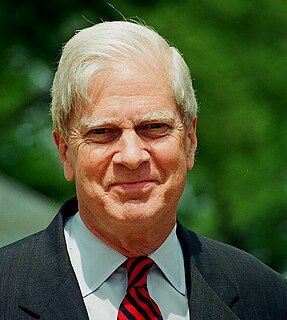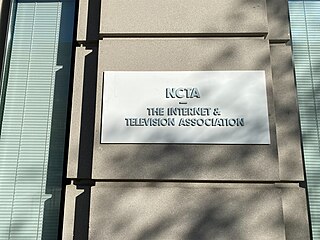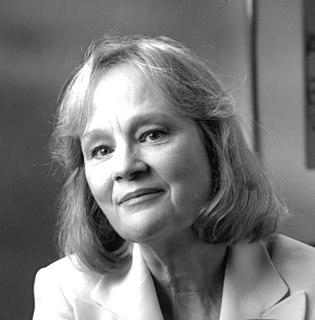The United States National Film Preservation Board (NFPB) is the board selecting films for preservation in the Library of Congress' National Film Registry. It was established by the National Film Preservation Act of 1988. The National Film Registry is meant to preserve up to 25 "culturally, historically or aesthetically significant films" each year; to be eligible, films must be at least 10 years old. Members of the Board also advise the Librarian of Congress on ongoing development and implementation of the national film preservation plan.

Monroe County is a county in the state of Florida. As of the 2020 census, the population was 82,874. Its county seat is Key West. Monroe County includes the islands of the Florida Keys and comprises the Key West Micropolitan Statistical Area. Over 99.9% of the county's population lives on the Florida Keys. The mainland, which is part of the Everglades, comprises 87% of the county's land area and is virtually uninhabited with only 19 people in total.

Rehoboth is a historic town in Bristol County, Massachusetts, United States. Established in 1643, Rehoboth is one of the oldest towns in Massachusetts. The population was 12,502 at the 2020 census. Rehoboth is a mostly rural community with many historic sites including 53 historic cemeteries.

Stillwater is a city in, and the county seat of, Payne County, Oklahoma, United States. It is located in north-central Oklahoma at the intersection of U.S. Route 177 and State Highway 51. As of the 2010 census, the city population was 45,688, making it the tenth-largest city in Oklahoma. The Stillwater Micropolitan Statistical Area had a population of 78,399 according to the 2012 census estimate. Stillwater was part of the first Oklahoma Land Run held on April 22, 1889 when the Unassigned Lands were opened for settlement and became the core of the new Oklahoma Territory. The city charter was adopted on August 24, 1889, and operates under a council-manager government system.

Lander is a city in Wyoming, United States, and the county seat of Fremont County. It is in central Wyoming, along the Middle Fork of the Popo Agie River, just south of the Wind River Indian Reservation. It is a tourism center with several nearby guest ranches. Its population was 7,487 at the 2010 census.

The John F. Kennedy Center for the Performing Arts is the United States National Cultural Center, located on the Potomac River in Washington, D.C. It was named in 1964 as a memorial to assassinated President John F. Kennedy. Opened on September 8, 1971, the center hosts many different genres of performance art, such as theater, dance, orchestras, jazz, pop, and folk music.
A parent–teacher association/organization (PTA/PTO), parent-teacher-friend association (PTFA), or parent–teacher–student association (PTSA) is a formal organization composed of parents, teachers and staff that is intended to facilitate parental participation in a school.

James Hadley Billington was an American academic and author who taught history at Harvard and Princeton before serving for 42 years as CEO of four federal cultural institutions. He served as the 13th Librarian of Congress after being nominated by President Ronald Reagan in 1987, and his appointment was approved unanimously by the U.S. Senate. He retired as Librarian on September 30, 2015.
The National Digital Newspaper Program is a joint project between the National Endowment for the Humanities and the Library of Congress to create and maintain a publicly available, online digital archive of historically significant newspapers published in the United States between 1836 and 1922. Additionally, the program will make available bibliographic records and holdings information for some 140,000 newspaper titles from the 17th century to the present. Further, it will include scope notes and encyclopedia-style entries discussing the historical significance of specific newspapers. Added content will also include contextually relevant historical information. "One organization within each U.S. state or territory will receive an award to collaborate with relevant state partners in this effort." In March 2007 more than 226,000 pages of newspapers from California, Florida, Kentucky, New York, Utah, Virginia and the District of Columbia published between 1900 and 1910 were put online at a fully searchable site called "Chronicling America." As of December 2007, the total number of pages is about 413,000. This further expanded to be 1 million pages in 2009. Funding through the National Endowment for the Humanities is carried out through their "We The People" initiative.

NCTA – The Internet & Television Association is the principal trade association for the U.S. broadband and pay television industries, representing more than 90% of the U.S. cable market, more than 200 cable networks, and equipment suppliers and providers of other services to the cable industry.
South Arts, formerly the Southern Arts Federation, headquartered in Atlanta, Georgia, is one of six not-for-profit regional arts organizations funded by the National Endowment for the Arts (NEA). South Arts creates partnerships and collaborations, assists in the professional development of artists, arts organizations and arts professionals; presents, promotes and produces Southern arts and cultural programming; and advocates for the arts and arts education. The organization works in partnership with the nine state arts councils of Alabama, Florida, Georgia, Kentucky, Louisiana, Mississippi, North Carolina, South Carolina and Tennessee.
The American Battlefield Protection Program (ABPP) is a United States federal government program created by the Secretary of the Interior in 1991, with the aim of preserving historic battlefields in the United States. In 1996, Congress signed into law the American Battlefield Protection Act, which officially authorized the ABPP. The program operates under the American Battlefield Protection Program Authorization as of 2009.

Cultural policy is the government actions, laws and programs that regulate, protect, encourage and financially support activities related to the arts and creative sectors, such as painting, sculpture, music, dance, literature, and filmmaking, among others and culture, which may involve activities related to language, heritage and diversity. The idea of cultural policy was developed at UNESCO in the 1960s. Generally, this involves governments setting in place processes, legal classifications, regulations, legislation and institutions which promote and facilitate cultural diversity and creative expressions in a range of art forms and creative activities. Cultural policies vary from one country to another, but generally they aim to improve the accessibility of arts and creative activities to citizens and promote the artistic, musical, ethnic, sociolinguistic, literary and other expressions of all people in a country. In some countries, especially since the 1970s, there is an emphasis on supporting the culture of Indigenous peoples and marginalized communities and ensuring that cultural industries are representative of a country's diverse cultural heritage and ethnic and linguistic demographics.
Arts administration is a field in the arts sector that facilitates programming within cultural organizations. Arts administrators are responsible for facilitating the day-to-day operations of the organization as well as the long term goals by and fulfilling its vision, mission and mandate. Arts management became present in the arts and culture sector in the 1960s. Organizations include professional non-profit entities. For examples theaters, museums, symphonies, jazz organizations, opera houses, ballet companies and many smaller professional and non-professional for-profit arts-related organizations. The duties of an arts administrator can include staff management, marketing, budget management, public relations, fundraising, program development evaluation, and board relations.
Arts Midwest, headquartered in Minneapolis, Minnesota, is one of six not-for-profit regional arts organizations created to “encourage development of the arts and to support arts programs on a regional basis.” Arts Midwest's mission is to "promote creativity, nurture cultural leadership, and engage people in meaningful arts experiences, bringing vitality to Midwest communities and enriching people’s lives.” Arts Midwest is primarily funded by the National Endowment for the Arts (NEA), and is charged with supporting artists and arts organizations, and providing assistance to its nine member states of Illinois, Indiana, Iowa, Michigan, Minnesota, North Dakota, Ohio, South Dakota, and Wisconsin.
The New England Foundation for the Arts (NEFA), headquartered in Boston, Massachusetts, is one of six not-for-profit regional arts organizations funded by the National Endowment for the Arts (NEA) and by private foundations, corporations and individuals.

The Asian American Arts Centre (AAAC) is a non-profit organization located in Chinatown in New York City. Founded in 1974, it is one of the earliest Asian American community organizations in the United States. The Arts Centre presents the ongoing developments between contemporary Asian & Asian American art forms and Western art forms through the presentation of performance, exhibitions, and public education. AAAC's permanent collection, which it has accumulated since 1989, contains hundreds of contemporary Asian American art works and traditional/folk art pieces. The organization also has an Artists Archive which documents, preserves, and promotes the presence of Asian American visual culture in the United States since 1945. This includes the East Coast, especially the greater New York area; the West Coast; and some artists in Canada, Hawaii, and overseas. The artists include Asian Americans producing art, Asian artists who are active in the United States, and other Americans who are significantly influenced by Asia. Pan-Asian in outlook, the Arts Centre's understanding of ‘Asia’ encompasses traditions and influences with sources ranging from Afghanistan to Hawaii.

The Library of Congress (LC) is the research library that officially serves the United States Congress and is the de facto national library of the United States. It is the oldest federal cultural institution in the United States. The library is housed in three buildings on Capitol Hill in Washington, D.C.; it also maintains a conservation center in Culpeper, Virginia. The library's functions are overseen by the Librarian of Congress, and its buildings are maintained by the Architect of the Capitol. The Library of Congress is one of the largest libraries in the world. Its "collections are universal, not limited by subject, format, or national boundary, and include research materials from all parts of the world and in more than 450 languages."
Higher education accreditation in the United States is a peer review process by which the validity of degrees and credits awarded by higher education institutions is assured. It is coordinated by accreditation commissions made up of member institutions. It was first undertaken in the late 19th century by cooperating educational institutions, on a regional basis.

Caroline Warner Hightower is an American arts executive, consultant, and former executive director of the American Institute of Graphic Arts (AIGA).











